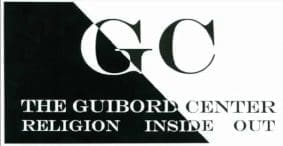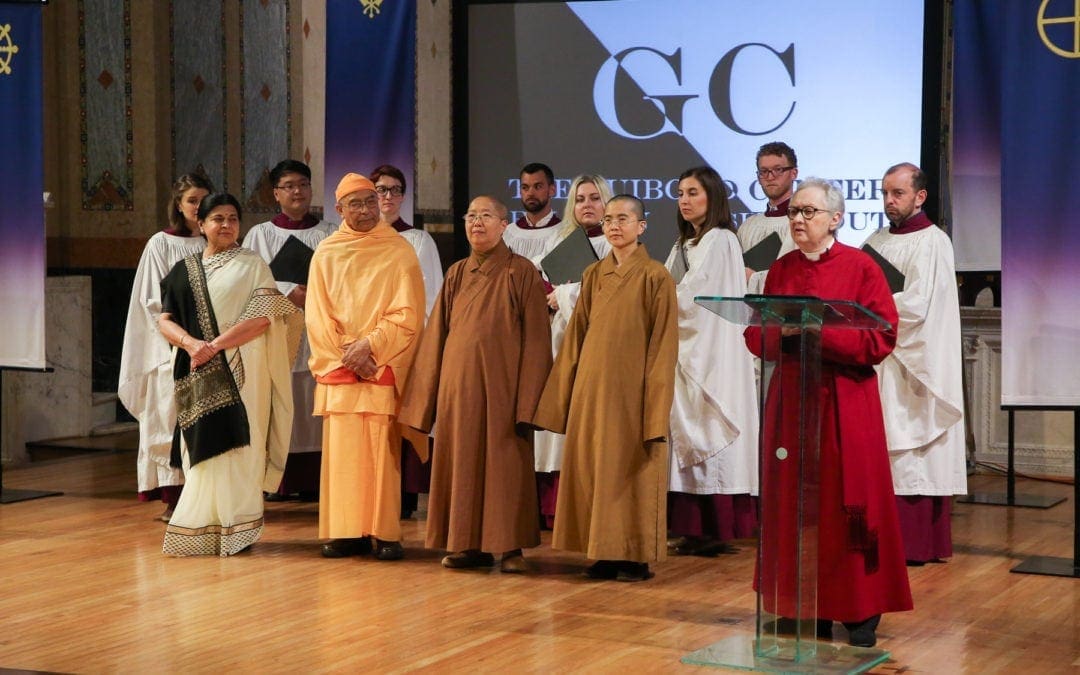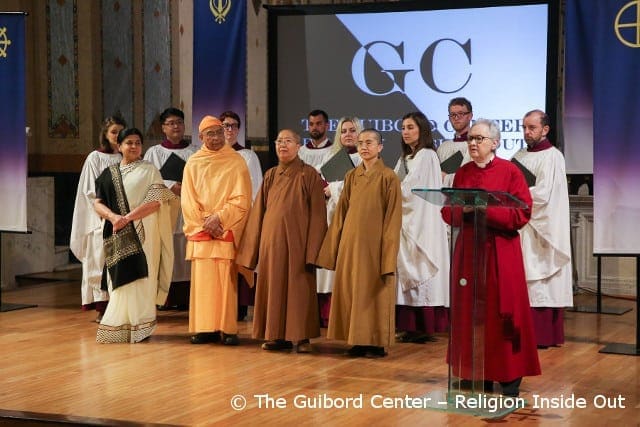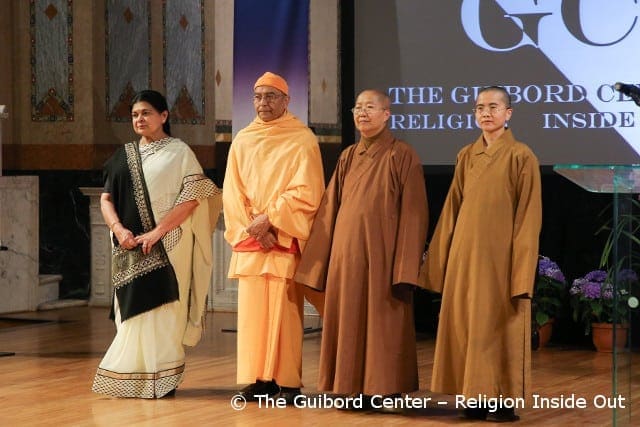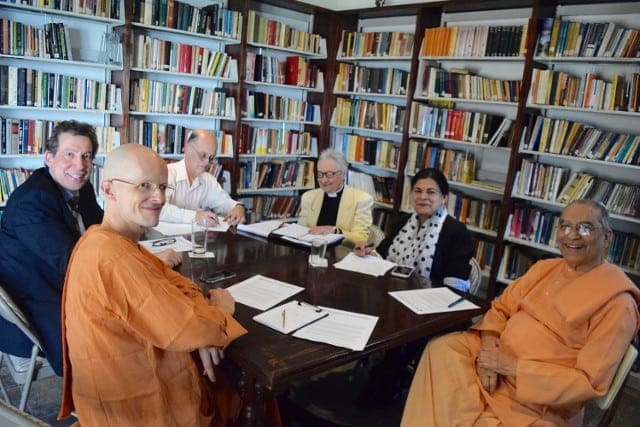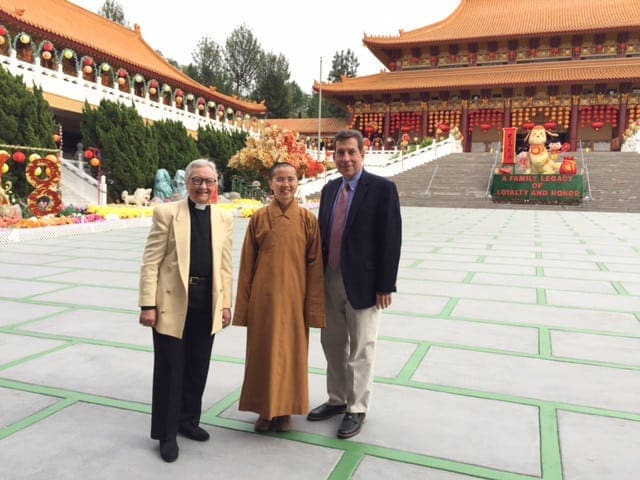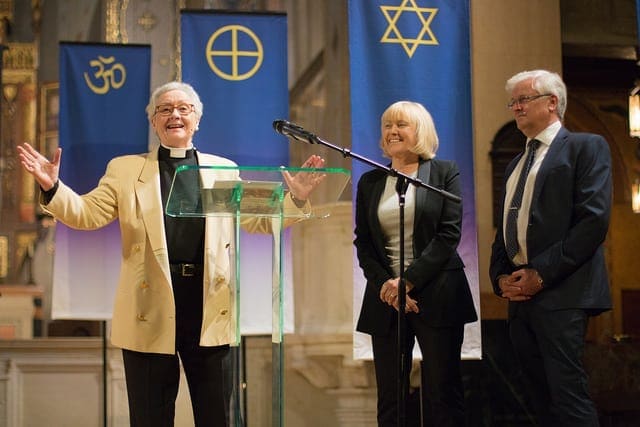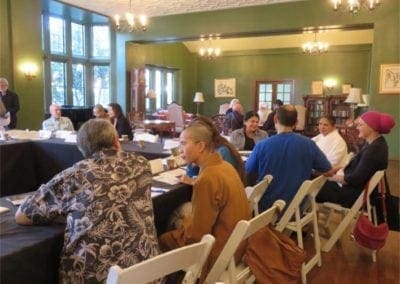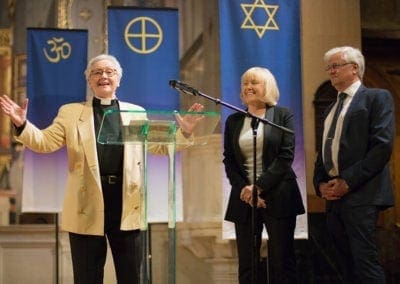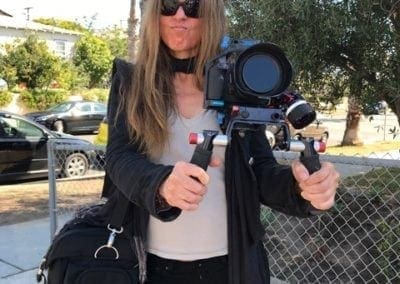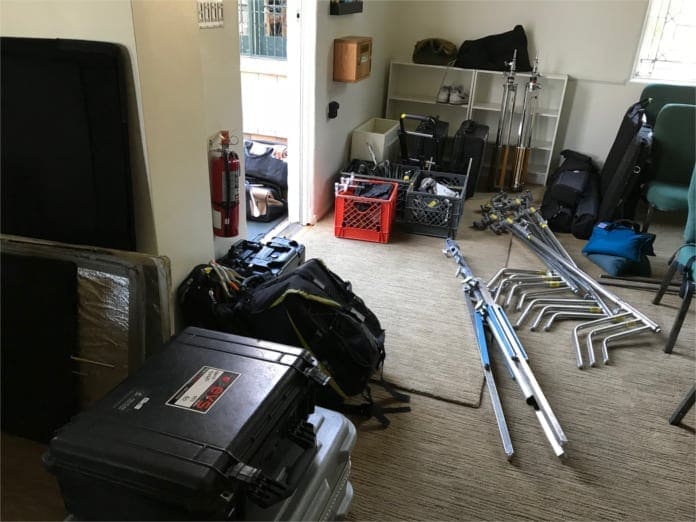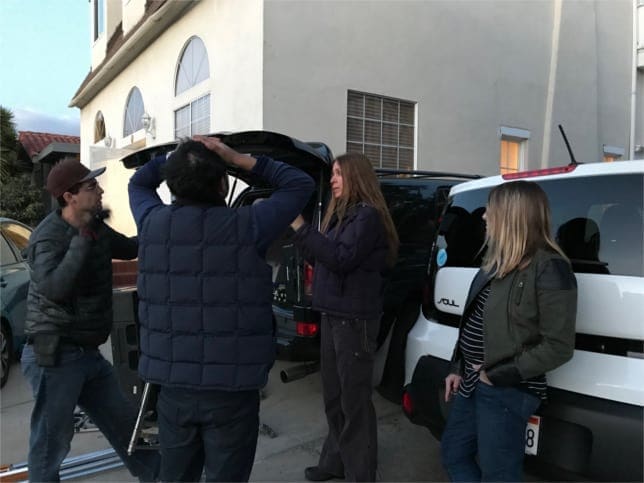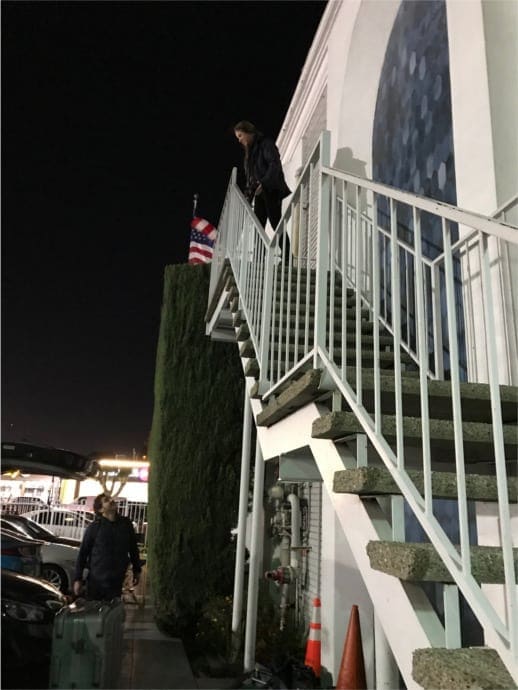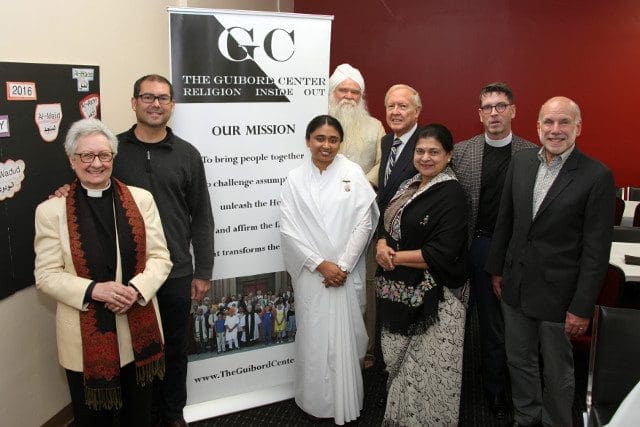
Faiths that Fast: A Discussion of the Spiritual Practice of Fasting
Leaders from seven major faith communities in Los Angeles discuss the spiritual practice of fasting at The Guibord Center’s Iftar Dinner at the Islamic Center of Southern California. Faiths that Fast reminds us of the common purpose of fasting: To draw closer to the Holy and make us more mindful of those less fortunate than ourselves.
Seven faiths. One spiritual practice. FASTING.
Heads nod throughout the room. People lean forward listening attentively. Eyes meet in a sparkle of recognition. Understanding grows. Deepens. Biases crumble.
Leaders of various faiths, all members of The Guibord Center’s Board of Directors and Advisory Council, have convened during the sacred Muslim month of Ramadan. They have been brought together to explore how different faiths see and engage in the spiritual practice of fasting.
Each shares with humor and humanity about what fasting means to them personally as well as to their faith. The results are fascinating. New knowledge and affirmations of sharing in the same journey and spiritual hungering. Insights and laughter.
Fasting and abstinence make room for God. They allow us to become more aware of, focus on and hunger for God. To open our hearts to God and one another. Fasting – no matter what our specific faith – can deepen our spirituality. It can grow our appreciation of the bounty we have and our compassion for others’ needs.
Fasting is private and intimate. It is communal and connecting. Joyful and rigorous. Demanding and liberating. Exhausting and energizing. Powerful and humbling and profound. It is all this and much more.
Bahá’í
Randy Dobbs began the hour by explaining that Bahá’ís pair fasting with prayers. Believers fast from sunrise to sunset for 19 days right before the Bahá’í New Year on the spring equinox (March 19 or 20).
“There is physical food and there is spiritual food. The soul needs nourishing even as the body must have sustenance. We deny ourselves physical nourishment to affirm the spiritual food for which we truly hunger.” Randy shared from the rich body of Bahá’í readings that do, indeed, nourish the soul. He set the tone for the panel.
Hinduism
Dr. Rini Ghosh explained that while fasting specifics differ from region to region throughout India, Hinduism’s intention for fasting has always been the same: to focus on God. Think of all the time it takes to plan and get and prepare and consume food, she said with a chuckle. It can be re-channeled into time spent contemplating God.
Fasting, Rini added, has a secondary benefit. It helps us appreciate the struggle of those who are forced to go hungry. She also touched on the practice’s remarkable power with the compelling story of Mahatma Gandhi, through fasting, halting the bloodbath taking place in his country.
Christianity
“Christians fast because Jesus fasted. And Jesus fasted because he was a faithful Jew,” stated the Rev. Canon Dan Ade, an Episcopal priest. Father Dan confessed that he was as astounded as many lay believers to discover numerous days of fasting in The Book of Common Prayer, his denomination’s guiding text.
Abstinence and prayer provide us with the opportunity to order our thoughts and impulses so we can better follow the Lord’s teachings. Fasting reminds us of our dependence before God and of what we have been given. It’s not really about food, but about intentionally marking the relationship between ourselves and God, creating space to encounter God’s graciousness. Father Dan concluded by describing his unique and quirky “L.A. fast,” which brings him rich rewards every Lenten season.
Judaism
Rabbi Neil Comess-Daniels opened his talk to chuckles and groans with the story of his worst fast. He went on to explain that “on Jewish holidays when we eat, we eat symbols of our history; and on fast days, we abstain from foods because of our history.” He also noted the compassion that different instances of fasting call for. “I cannot celebrate my freedom, my victory, as it is someone else’s defeat.”
After describing other fasts, Rabbi Neil turned to Yom Kippur, noting it isn’t really about food. It’s about atonement, apologizing for your wrongdoing. Most significantly, it’s about the penetrating hope for our lives described in the Bible’s prophetic sections that make clear God’s intention. The gist of the message is: “The fast that I want is for you to free the captive. The fast that I want is for you to clothe the naked. The fast that I want is for you to feed the poor. THAT’S what I want.”
Getting through our wrongdoings to the place where we do well and do good to the world. THAT is the purpose of Yom Kippur fasting, which only happens once a year and is a national day of fasting.
Sikhism
Nirinjan Singh Khalsa shifted the discussion by pointing out that Sikhs don’t fast from food. In fact, he said, Sikhs are known for feeding people – hundreds of thousands every day. “That is because not only do we like to eat, we like to make sure that everybody else gets to eat too.”
While Sikhs don’t give up food, Nirinjan continued, the concept of fasting, becoming closer to God, is very important in the sense that they spend 2 1/2 hours every morning before sunrise to meditate on God.
Brahma Kumaris
As the final speaker, BK Sister Vino was able to summarize the day’s learning. “No matter what our traditions or customs are, our purpose is the same: eternally living to our best potential and connecting to the Supreme – however you would call the Supreme.” She spoke of the many things that Brahma Kumaris fast from all their lives: meat (they are vegetarian), drugs, alcohol, and smoking. Most importantly, they “fast” constantly within their thinking through the discipline and practice of meditation.
Like Sikhs, she noted, BKs meditate in the early morning. They rise from 2:00 – 5:00 for that time of calming and clearing the mind through attuning with one’s best self and the Supreme. Their belief is exemplified by the quote: “We don’t see the world through a window. We see the world through a mirror.”
Clearing the mind and caring for inner needs allows us to see others clearly without judgment instead of unconsciously (and dangerously) projecting our own unresolved issues onto others. This way, we can always accept people as they are instead of from their weakest place.
“All of our practices are different – the way we do it – but our hearts are all the same,” Sister Vino concluded. “We are one spiritual family.”
